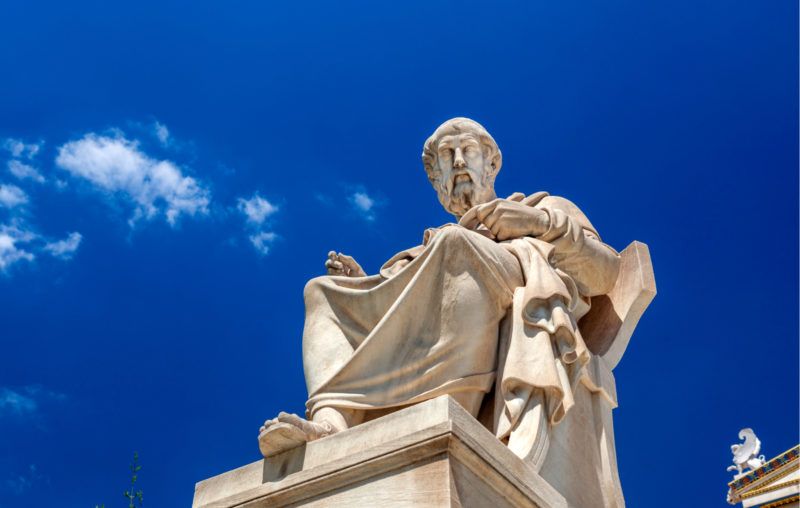The Epistemic Burden of Politics

Former Secretary of Defense Donald Rumsfield once famously remarked in a press conference that
“There are known knowns; there are things we know we know. We also know there are known unknowns; that is to say we know there are some things we do not know. But there are also unknown unknowns – the ones we don’t know we don’t know.”
It is highly possible he could have found a better way to articulate his thoughts but nonetheless his statement carried a profound lesson. That is that policymakers face tremendous burdens in understanding what they do and do not know. We trust our leaders in government to make informed decisions on our behalf and a failure to understand the full implications of a policy will adversely affect countless individuals.
Arizona State University Professor Scott Scheall explores the topic of knowledge acquisition in policymaking in his latest book F.A. Hayek and the Epistemology of Politics: The Curious Task of Economics. His work serves as an extension and expansion of the thinking espoused by legendary economist Friedrich Hayek. The phrase at the end of the book’s title is part of a famous Hayek quote that begins
“The curious task of economics is to demonstrate to men how little they really know about what they imagine they can design.”
Hayek was speaking to the vast hubris that permeates the minds of policy experts and decision-makers. Through economic analysis, particularly through the Austrian school of thought, the viewer should understand that society has countless individual needs and desires. That there is a natural order that arises regardless of the will or blessings of a central administrator. That disrupting that order with restrictive, clumsy, and misinformed government policy will only bring unintended consequences.
This is the essence of the rest of Hayek’s famous quote as he remarks
“It may seem absurd that in complex conditions order, and adaptation to the unknown, can be achieved more effectively by decentralizing decisions and that a division of authority will actually extend the possibility of overall order. Yet that decentralization actually leads to more information being taken into account.”
This is the topic Scheall explores quite deeply in his book, political epistemology. According to the Oxford Dictionary, epistemology is
The theory of knowledge, especially with regard to its methods, validity, and scope. Epistemology is the investigation of what distinguishes justified belief from opinion.
How do those in government such as elected officials and bureaucrats know exactly what their constituents want? How do they know truly what is the best course of action in response to a recession or a pandemic? Are they adequately equipped to understand the tradeoffs and consequences of their decisions? For the most part, liberal democracies seem to implicitly acknowledge their epistemic shortcomings.
They understand that market mechanisms like prices, private property, supply and demand, and individual autonomy are far superior to central planning in delivering the needs of society. Although economic and civil freedom is good for many other noble causes like general prosperity and preventing tyranny, they ultimately function as a means to process information about society. Through these market mechanisms, we are able to find solutions to all sorts of knowledge problems such as how to construct a global credit network, or how to leverage supply chains that span the planet to feed billions. These incredibly difficult questions are answered by decentralized and voluntary decision-making.
Scheall’s book points out how the political process is simply another means to acquire knowledge to execute decisions, albeit an inferior one. Elected officials are simply surrogates that individuals appointed to wield the power of the state and make decisions on their behalf. The political process, voting, town halls, lobbying, debating; these are means in which a single individual, the policymaker, attempts to acquire knowledge that is dispersed throughout society.
Scheall recommends that if we wish to retrieve the best outcomes from government action, we must understand the epistemic burdens of policymakers and come to terms with their limits. He explains what he means by this when he writes
“The epistemic burden of a course of action is everything a decision-maker must know (-that and -how), which they do not already know, in order to pursue the course of action effectively.”
Those in power must realize that their position does not grant them any special abilities that allow them to know everything. Many decisions are made by officials in an office 10,000 miles away from the problem, surrounded by government officials who think and act in similar ways.
This individual has a far greater epistemic burden than the families and communities directly dealing with the issue. In this case, it would be wise to acknowledge that those closest to the issue are in a drastically better position to be able to understand the problems they face as well as the solutions.
Being able to understand the limits of one’s capability to obtain knowledge about a problem is just as important as acquiring information.
Although the standard to decide to what extent policymakers are limited in their capacity to make a truly informed decision is unclear, a general inquiry into where that might be would go a long way. Likewise, society has greatly benefited from the general questioning of what the proper size of government should be rather than simply letting it run unhinged.
Instead of assuming politicians and bureaucrats to be all-knowing, there should be a robust debate of whether they are even in a position to understand what they are attempting to control.
For example, in attempting to contain the COVID-19 Pandemic, one can safely assume that a government official is knowledgeable enough to communicate some basic information regarding the virus. However, we should be incredibly skeptical of his or her ability to be knowledgeable enough to deem certain businesses essential and others nonessential. The information to make that decision belongs to the individual consumers and businesses that form a complex economic ecosystem.
On the futility of expecting policymakers to be informed enough to plan society Eric Nies writes
“Planning as such is doomed to failure because of the insurmountable economic knowledge problem. As Frederick Hayek notes, “the ‘data’ from which the economic calculus starts are never for the whole society ‘given’ to a single mind which could work out the implications and can never be so given.” Instead, you have numerous actors, each with incomplete knowledge, stepping on each other’s feet.”
Both politicians and citizens must come to terms with the limits of their information and ability to make decisions on behalf of others. Scheall writes
“Constituents might demand action of policymakers that the latter neither know of nor can learn enough to make effective… Even if surrogates have nothing but the interests of their surrogates in mind, their ignorance can prevent them from acting in ways that promote those interests.”
When we empower governors to lock down their economies and implement phased reopening measures, we must also understand that those in power physically lack the ability to truly understand what they are attempting to control. Scheall explains,
“Policymakers are not gods. They are neither omniscient nor omnipotent. Their knowledge or relevant facts and theories is limited, as are their powers.”
Nobody, not even supercomputers can even begin to comprehend the countless moving parts in society. This is why there have been disastrous unintended consequences from failing to understand informational limits.
There are few more guilty of hubris and ignorance than the epidemiologists and politicians who claim that millions would die if lockdowns were not instituted. Phil Magness explains how wildly incorrect some of the most influential experts were on predicting COVID-19 deaths. He notes that
“The Trump administration specifically cited ICL’s 2.2 million death projection on March 16th when it shifted course toward a stringent set of “social distancing” policies, which many states then used as a basis for shelter-in-place orders.”
How can anyone be fit to not only understand a new virus that the medical community is still frantically researching but construct a model that can simulate the real-world consequences?
In this case, the experts and those in power did not know what they did not know. The 2.2 million death projection was wildly incorrect and the lockdown measures devastated the economy.
An article published by the Harvard Business Review warns that
“We still lack many of the basic facts about this disease, including how many people have symptoms, whether people who have been infected are immune to reinfection, and — crucially — how many people have been infected so far. In the absence of reliable virological testing data, we cannot fit models accurately, or know confidently what the future of this epidemic will look like for all these reasons, and yet numbers are being presented to governments and the public with the appearance of certainty.”
This goes to show the massive epistemic shortcomings of our response and mechanisms being employed against COVID-19. As leaders proclaim that they have all the answers to the crisis, this is a classic instance of not knowing what we don’t know.
The article goes on the say that
“Jason Bay, the product lead of Singapore’s successful tracing app, TraceTogether, cautions that “automated contact tracing is not a coronavirus panacea.” Yet some app-based contact-tracing efforts are being used to risk-stratify people, and these estimates are being used to make decisions on quarantine, isolation, and freedom of movement, without concomitant testing.”
Contact tracing along with many other resources are oftentimes hailed as one of the government’s magical tools to help combat COVID-19. However, by examining these mechanisms through an epistemological lens, we realize that they are incredibly ineffective at relieving policymaker ignorance.
Not only are things like contact tracing and epidemiological models highly imperfect, but the execution of nationwide policy requires knowledge that is simply unattainable at the macrolevel. Knowledge about the individual nuances of communities, how government policy will intersect with socioeconomic circumstances, and unintended consequences.
From an epistemological perspective, the government is not cutting with a scalpel, it’s swinging a sledgehammer with a blindfold.
The problem of policymaker ignorance is something society often takes for granted. Although mocking politicians for poor decision-making and lack of knowledge is a common practice, Scheall’s book shows that these problems are structural, not just individual.
Liberal democracies generally understand there are natural and just limits on the scope of government. The state cannot magically eliminate poverty with the stroke of a pen, nor does it have the right to silence our freedom of expression without losing its legitimacy.
In the pursuit of a more perfect union and better decision-making, we should begin to contemplate the epistemic limits of government. To inquire into the limits of knowledge acquisition and understanding. To what extent can those at the individual, local, state, and federal level act with an adequate understanding of the consequences of their actions and the needs of those they govern?
Scheall remarks at the end of his book that
“There is a tradeoff between effective government and ambitious government.”
Our experience with COVID-19 should be the catalyst for bringing epistemological inquiry into the mainstream discussion. There are plenty of debates to be had about the structural ignorance that is inherent to policymaking. What knowledge is accessible to decision-makers and what information is exclusive to the governed? Is the government even capable of understanding the full implications of shutting down the economy and closing schools? To what extent do public health experts truly have the tools and expertise to make the recommendations they make, with the degrees of certainty they employ?
At the moment the answer is unclear as epistemological inquiry has yet to become a mainstream discussion topic. However, coming to terms with what decision-makers can and cannot know will be a clear step in creating a more humble and effective government.










